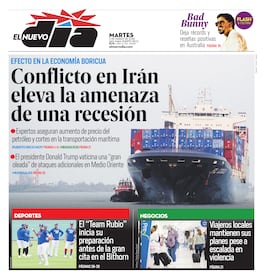The approval of a new law that facilitates remote access to physicians and health professionals resolves an urgent need of Puerto Rican patients, who have had to face long waits and, in many cases, the impossibility of receiving specialized care.
---
Lee este artículo en español.
---
Act 8 of 2025 moves in the right direction to address, in part, this situation caused by the incessant exodus of physicians and the retirement of others. If anything positive came out of the COVID-19 pandemic, it was the revitalization of telemedicine, which went from representing only 5% of total consultations to 60%.
Governmental efforts are correcting the lack of a statute regulating this practice, which will allow interaction with both local professionals and physicians in the United States. In addition, the services provided will have to be billed and reimbursed by insurance companies and the Health Insurance Administration (ASES) in the same way as in-person services.
This legislation determines that a physician or health professional licensed in Puerto Rico will not need additional certification to practice telemedicine.
However, according to the Secretary of the Department of Health, the same does not apply to physicians who offer these services from the United States, who will have to obtain additional certification.
A good remote consultation with a health professional can resolve common health problems and correctly refer those who require a second opinion or even detect an ailment that warrants an emergency visit. Although telemedicine does not resolve all cases, it helps to decongest waiting rooms and reduce unnecessary consultations in emergency services.
Puerto Rico is facing an unprecedented crisis in its healthcare system, due to the shortage of doctors and specialists, according to a study presented by the Fiscal Oversight Board.
Forty-seven percent of active physicians on the island are 60 years of age or older, the highest rate among all U.S. states and territories. The most critical situation is the shortage of specialists in pediatrics, rheumatology, obstetrics, gynecology and surgery.
In addition, the retention rate of young physicians on the island is barely 50%.
Moreover, telemedicine requires users to have basic technology and internet skills. Statistics do not help to support the success of this innovation: about 35.2% of Puerto Rico’s inhabitants are 55 years of age or older, and less than half of this group has regular access to the Internet. According to Puerto Rico’s Digital Equity Plan (2024), only 47% of older adults access the web regularly, compared to 92% of 18-34 year olds.
Related to these initiatives, it is critical to address the issue of Internet coverage. The Broadband Equity, Access and Deployment (BEAD) Program has a $334 million fund to finance projects and activities for planning, deployment, mapping, equity and adoption of high-speed Internet. Hopefully these resources will be used effectively and not be lost in inaction.
It is hoped that the certification of U.S. physicians will not be unnecessarily delayed by bureaucracy. Access to these professionals helps address the shortage of specialists, which causes long waits and, in some cases, aggravates ailments.
Undoubtedly, Law 8 fills a gap and is a smart solution. In addition, this modernization positions Puerto Rico as a leader in telemedicine in the Caribbean region.
It is imperative to resolve all pending issues for the full implementation of a reform that promotes social equity.
---
This content was translated from Spanish to English using artificial intelligence and was reviewed by an editor before being published.


